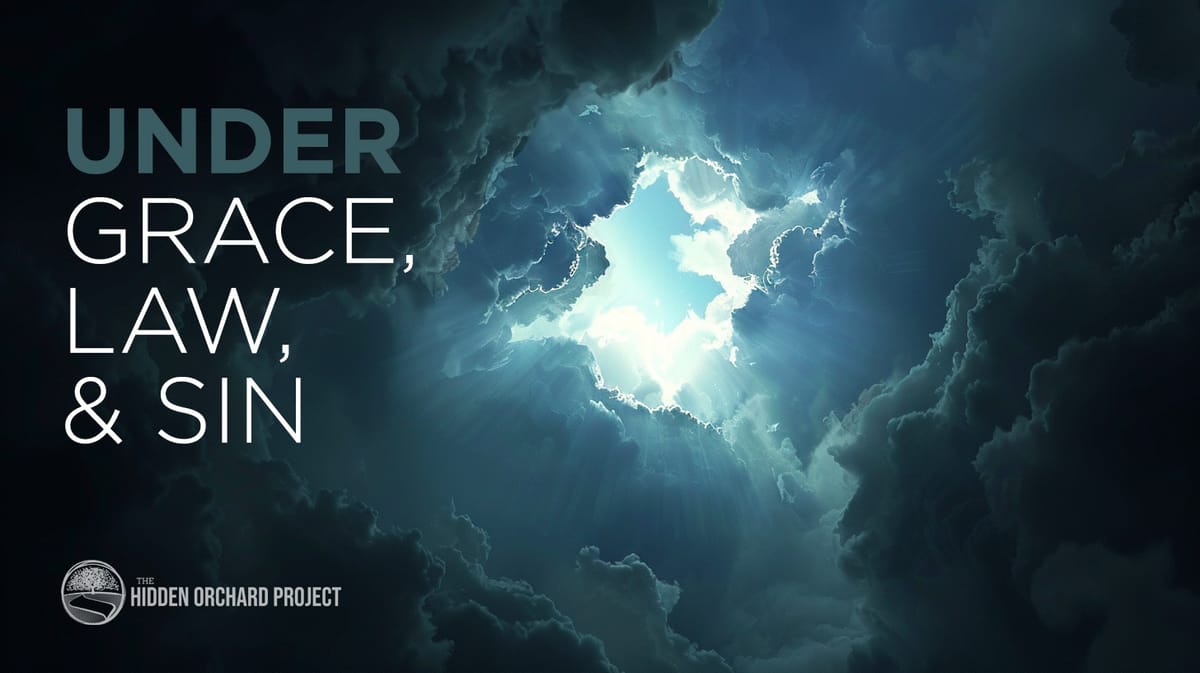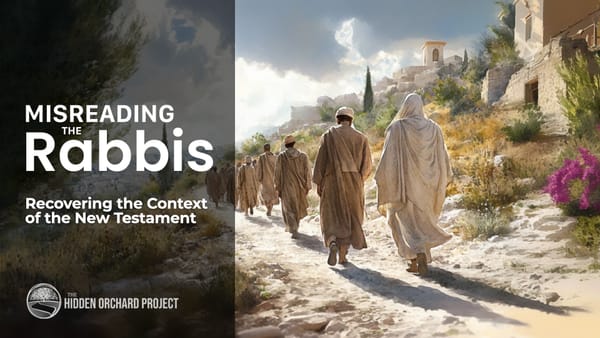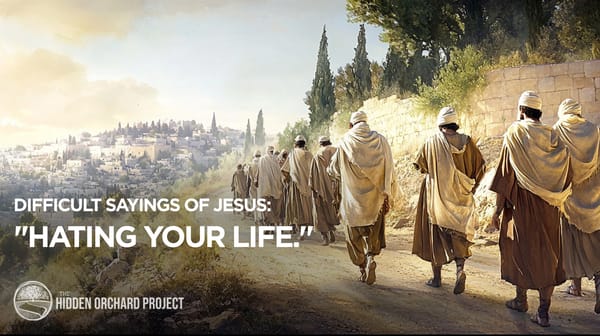Under Grace, Under the Law, and Under Sin
Of the most problematic ideas attributed to Paul is his teaching that Grace supersedes or replaces the Torah and commandments. This has led to an abandonment - and often vilification - of the commandments, which are a critical aspect of Biblical spiritual development.

One of the most problematic ideas attributed to Paul is that Grace somehow supersedes or replaces the Torah. This has often led to an abandonment - even the vilification - of the commandments¹, a critical aspect of Biblical spiritual development.
Once, speaking with a Pastor about the purpose of the Biblical commandments, with good intentions, he warned me that "keeping the commands could be sinful." In fairness, he seemed to hesitate to voice this idea, perhaps recognizing the logical problems this statement posed.
Either way, this notion is based on the popular interpretation of some of Paul's statements throughout the New Testament that seem to speak derogatorily of the "Law."
Did Paul Teach Antinomism?
We should note that this idea circulated in Paul's time - that he taught the Jewish people to abandon the mitzvot, a matter he sought to clarify in Acts 21:21-27.
While some are certain that this was Paul's teaching, we will dig deeper. Did Paul advocate abandoning the Torah? Did he intend to say that those "Under the law" are inferior to those "Under Grace," and what do these terms mean?
If this was his intent, we must wrestle with the fact that he also taught the importance of upholding the law, which he modeled through his continued obedience.
We'll try to make sense of these ideas - what it means to be Under Sin, the value of being Under the Law, and what Paul may have meant with the phrase "Under Grace."
Adam's Fall
The sin of Adam³ was a catastrophic event that brought destruction upon humanity and all creation⁴.
This event also resulted in deep impurity that blocks humans from attaining our full spiritual potential - and the integration of death. Paul acknowledges this in Romans 5:17.
Under Sin
The state of the world after Adam's error is what Paul referred to as "Under Sin." We might better understand this as being Under [the influence and effects] of Sin. Another outcome of this state of impurity is a degree of separation from G_D.
As it stands, this means that all humans - Jew and Gentile are 'Under Sin.'
... Jews and Greeks alike are all under sin,...
- Romans 3:9
Under the Law
Being Under Sin is an otherwise grim and hopeless reality; without Divine help, we cannot extract ourselves from this situation. This is similar to falling into a deep and dark pit without a ladder.
Thankfully, G_D gave the world a ladder.
In His grace, the Creator selected a particular group of people and formed a covenant with them. As a part of this covenant, He imparted an invaluable gift of Wisdom to help the world protect and separate itself from the effects of this harsh reality.
With its commandments, precautions, and prohibitions, the Torah is the gift that empowers us to remediate and avoid impurity on the personal and collective levels. It also enables the pursuit of holiness⁵.
In his letters, Paul refers to the Jewish people as "Under the Law." The Law - the Torah - shields us from the effects of being Under Sin. A similar statement is made in a later work:
"The Divine Wisdom decreed that the one who complies with those things that He has commanded, ie: the totality of the mitzvot, by performing any one of their deeds, through it he will be brought closer by some level of closeness to Hashem" - Derech Hashem 1 4:10
While Under Sin, one is vulnerable and exposed. However, being Under the Law allows one enough margin to pursue holiness and draw closer to the Creator. While the Torah pertains to the physical world, it also pertains to the spiritual. This is why Paul stated:
"the law is spiritual..." - Romans 7:14
Thus, being Under the Law is not to be viewed pejoratively. This is the heritage and enduring means for holiness of a people set apart for such a purpose.
This will begin to make more sense as we now unpack the category known as, "Under Grace."




